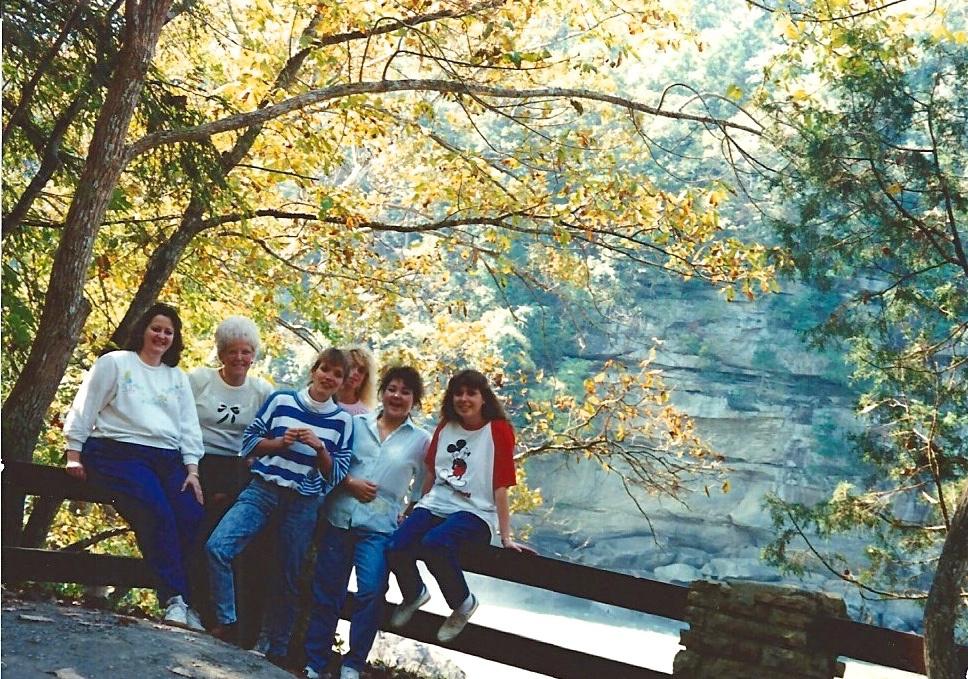
9 minute read
50th Anniversary History
Interview with Founder John Rosenberg
by Sarah Curry
Advertisement
Talking with John Rosenberg is like meeting the veritable Johnny Appleseed of Justice. He recalls hundreds of AppalReD alumni, clients, and cases by name and has a story about each of them. What a group of interns and lawyers we’ ve had, he reflected. Despite all John has done (we would need several more pages to include all his service, substantial cases, and accomplishments), the desire to help even more comes through. He’s still incredibly active in making Kentucky a more equitable place for the poor. He’s frank about cases that failed—or cases won that felt like too little, too late.
Speaking with John allows us to zoom out—a gift considering the stressful reality of daily life during coronavirus and the urgency of the work that lays in front of us. Of course, it’s imperative that we focus on the challenges of the day to day. Certainly, John’s story teaches us the power of hard work and perseverance. But John’s view from above is critical. It shows just how much AppalReD has accomplished in fifty years. More than that, John is clear that while he’s often been the face of AppalReD, there are hundreds of people who have contributed to the beautiful mosaic of work over the past 50 years. Looking back allows us to look forward—to dream and envision the next 50 years.
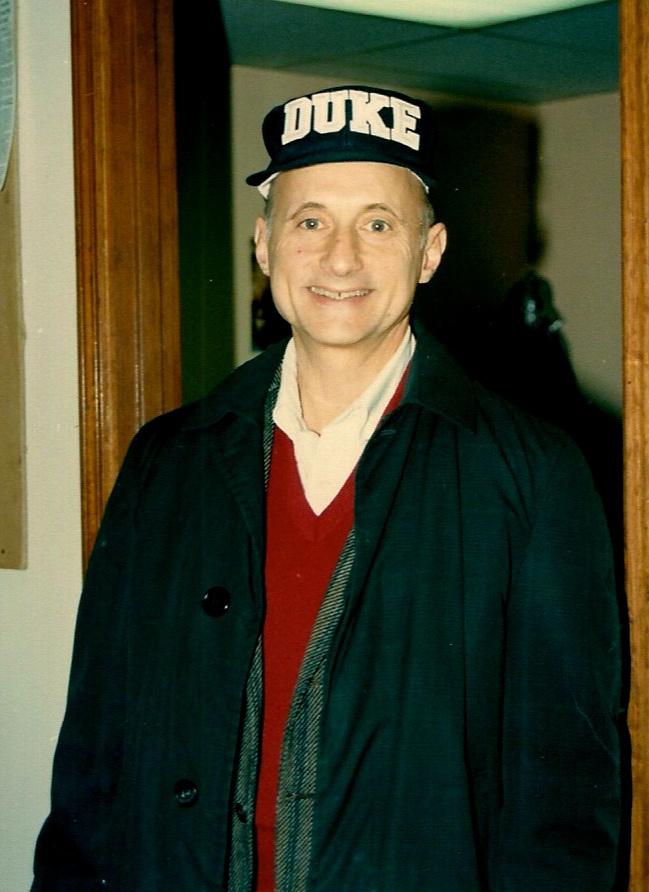
SC: How does it feel to have AppalReD Legal Aid reach its 50th year? JR: I am proud of having seen AppalReD serve the low income population of our region for 50 years and look forward to that continuing on.
SC: About 50 years ago, you left the Justice Department and took a long road trip with Jean and your son, a baby at the time. You received a call asking if you would come see if you would be interested in directing AppalReD. When you drove into Prestonsburg for the first time, what did you think?
JR: It was early fall and the leaves were starting to change. It was beautiful. We camped at Jenny Wiley State Park, the only campers at that point. Jean asked me if I saw any bears. Even then, the main roads were pretty good, so you don’t get a sense of the country roads winding through poorer housing or the strip mines.
SC: Initially, you had trouble renting space, right?
JR: There was an atmosphere of hostility and suspicion, especially among the “establishment” and local officials. They were wary of outsiders. After the first realtor learned more about who I was and what we were expecting to do he reneged on the place he had agreed to rent to me.
SC: What were the first offices like?
JR: The one in Prestonsburg was in a small residential home, one of the few places I could find. It was pretty spartan and a bit of a squeeze. We used the room you walked into as reception. There were two small bedrooms for lawyers and an upstairs space. The landlord, a local high school art teacher, put a metal eagle outside to make it look more official. The other office in Barbourville had been a store so we put in partitions. But we quickly put in a good law library in both places. We often had the best law library in town.
SC: It seems like your staff had a can-do attitude.
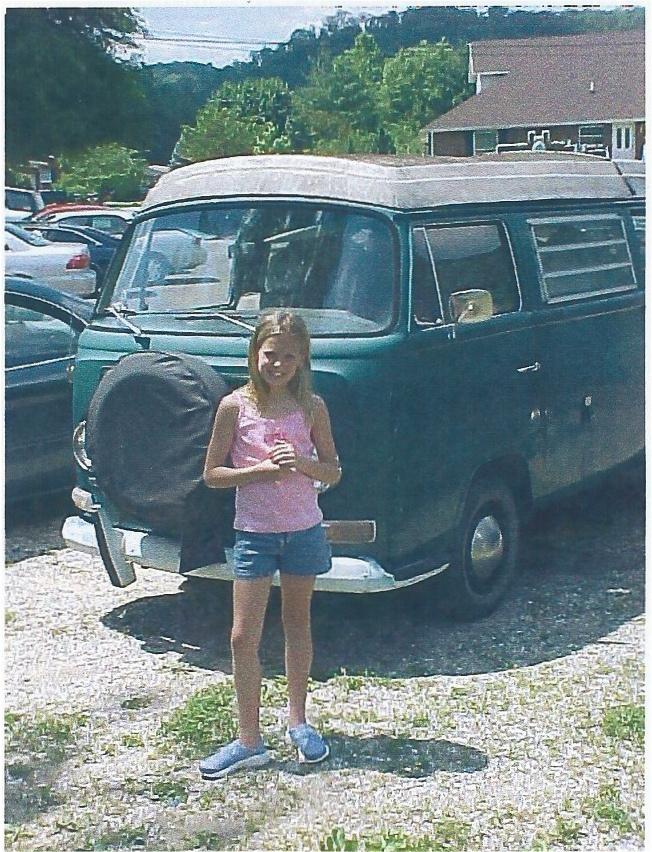
Taylor Moak Poston, now a lawyer, in front of Rosenberg’s VW bus.
JR: Our staff were not concerned with fancy trimmings. We focused on ensuring our offices were well equipped and . . . had a professional look. I took a lot of teasing for the AppalReD vehicles (Note: One attorney described them as Flintstones cars because of the holes in the floorboard). Among them were VW Things. They were driven long and hard—noisy but practical. Sometimes they broke down. For example, One time, I was driving to a hearing. So halfway to Lexington the car starts acting up. I stopped, got out of the car, and looked under the hood. My client then locked me out of the car! It was very cold. Eventually he let me in. . .We were suing the Paintsville Housing Authority for racial discrimination. Initially, a mom came to us whose home had burned down, and her application had been denied. She was living with her four children in her car. She had rigged up a lean-to out of the charred pieces of timber and the car. Then we realized there were more qualified people being denied: Black and Native American veterans and single moms.
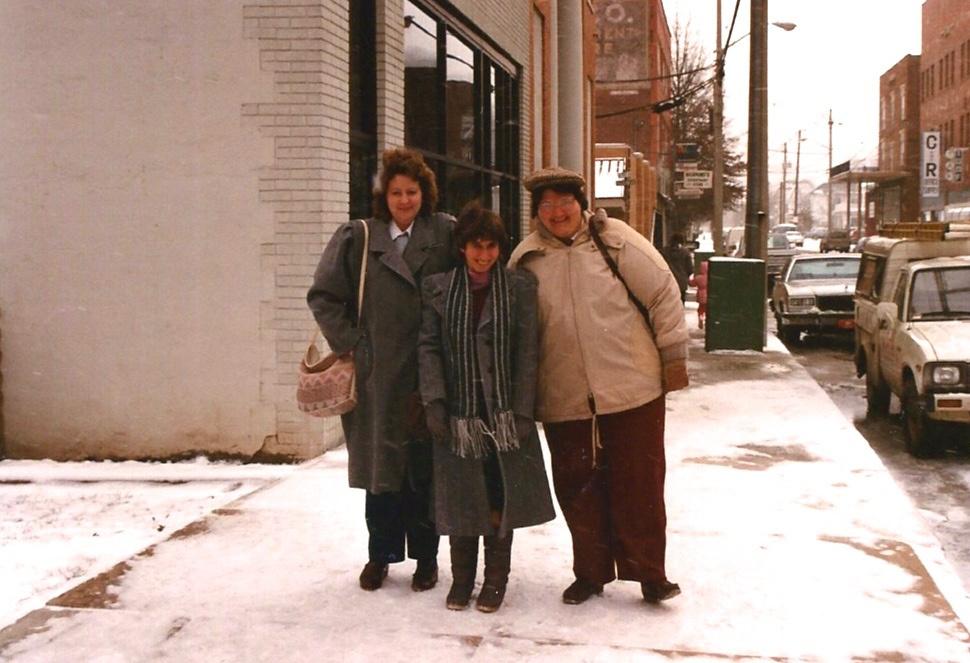
Brenda Campbell, Karen Alfano, and Judy Amburgey.
SC: How did you feel when you went to court? Did you get nervous? I’ ve heard that you were always very prepared.
JR: I am usually OK. I had very little sleep the night before I argued in the Kentucky Supreme Court—the Broadform Deed Case. I was still wrestling myself about how best to present it. I did not do such a great job, but we won . . . .
SC: The Broadform Deed fight is such an amazing example of the power of community organizing, coalition building, legal advocacy, and using every tool at your disposal. To quote you to you: “Good lawyering is not behind a desk. ” AppalReD and Kentuckians For The Commonwealth (KFTC) actually wrote the language to put the Broadform Deed on the ballot and it passed with 92% of the vote. But its constitutionality was challenged.
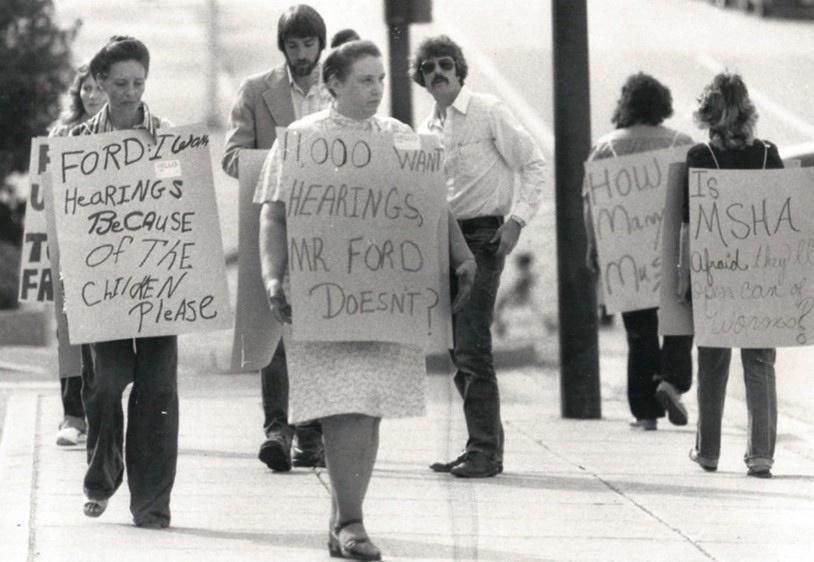
Widows and families of the Topmost Mine Disaster picket a speech by MSHA to a group of coal operators . The families wanted MSHA to convene a public hearing to investigate the mine explosion that killed eight miners on December 8, 1981.
JR: It took almost twenty years to win the Broadform Deed fight. Along the way, we represented numerous groups and individuals in opposing strip mining on their property and efforts to protect and secure safe drinking water for our clients. I’ll always remember representing a Pike County group on Marrowbone Creek. They were threatened with surface mining over their homes. They drove with me to Frankfort many times for the hearing and we eventually had the permit denied. Might have been the first time that happened. We represented other surface owners who wanted to protest mining on their property. The operator had many violations so I filed objections. We won and were able to prevent the mining. In fact, the operator later asked me if I could represent him. This reminds me of a comment one of the circuit judges made when he was asked about us: “If I was ever in trouble, I would want AppalReD to represent me. ” What better comment could a program ask for?
Another of my first clients was seeking Social Security benefits for his black lung disability. I will always remember how he described his daily work which began by walking and crawling a mile before getting to the face where the mining was going on. Having done this for many years, he had become disabled. I was successful representing him and I stayed in touch with his family for years.

Steve Sanders, Tony Oppegard, and George Lowers (Former MSHA Inspector) in Pike County.
Another extended case that stands out was a battle to prevent mountaintop removal on a disabled veteran's land that lasted several years. When the circuit court ruled against us, the family could not put up enough of a bond to stop the company from surface mining. We appealed and the court ruled in our favor, but it was after the fact. I was able to recover some monetary damages, but the family would have gladly given the money all back to prevent the mining.
SC: I know it’s hard to narrow down, but what are some of AppalReD’s accomplishments you’re proudest of?
JR: First would be the staff that worked with me during my 30 plus years as Director . . . I am proud of the fact that between 1974-1981, until President Reagan tried to defund legal services, we were able to open eight new offices for a total of eleven offices with 48 lawyers; over 100 folks in different capacities—lawyers, paralegals, secretaries. I am proud that we were able to employ a growing number of women attorneys. Before they came, there were very few in Eastern Kentucky. I am proud of the AppalReD board members—lawyers and client representatives—over the years, and their Chairs, who have guided us in the right direction and protected staff when necessary. I am also proud of the AppalReD alumni, so many of whom have continued in their public interest careers, whether as law teachers, legal services lawyers, public defenders, or in state and federal agencies.
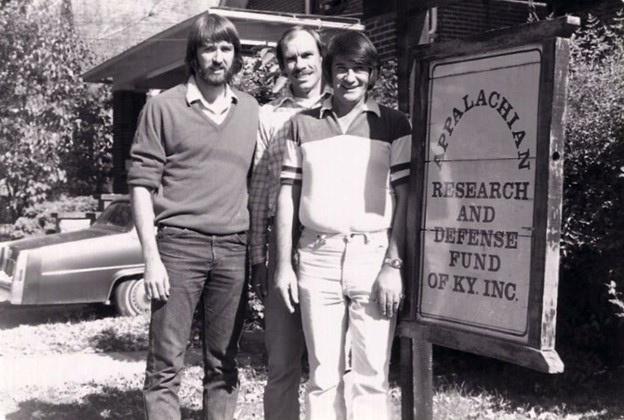
Tony Oppegard and Steve Sanders with client Victor McCoy after they won his mine safety case. Pikeville office. 1982
I am proud of the Mine Safety Project, fighting for black lung benefits, fine work on consumer protection, suing the state park system on behalf of Black workers, our work setting up some of the first domestic violence shelters, our work against check cashers, taking on helping migrant farmworkers who had inadequate pay and working conditions, taking a case to the U.S. Supreme Court on behalf of a widow denied UMWA mine worker benefits, and recruiting lawyers to take on the Eric Conn cases. AppalReD clearly had meaningful impact in environmental and mine safety and black lung. If you think about 5,000 cases per year times 40 years, that’s 200,000 folks in this region (more if you count their families) whose lives have been affected, hopefully in a positive way.
"I am sure there are hundreds, if not thousands of folks who would say that AppalReD means the world to them—stopping foreclosure, domestic violence, preserving property, and getting benefits."
SC: AppalReD has accomplished and weathered so much. What do you see as AppalReD’s current challenges? What are your dreams for AppalReD’s future?
JR: For now, we need more funding for more attorneys to serve our low-income population. How to serve the large population of clients across a large geographic area who need representation and assistance was and continues to be a challenge. Staff should be able to work without worrying about living paycheck to paycheck. We simply need more support from everywhere.
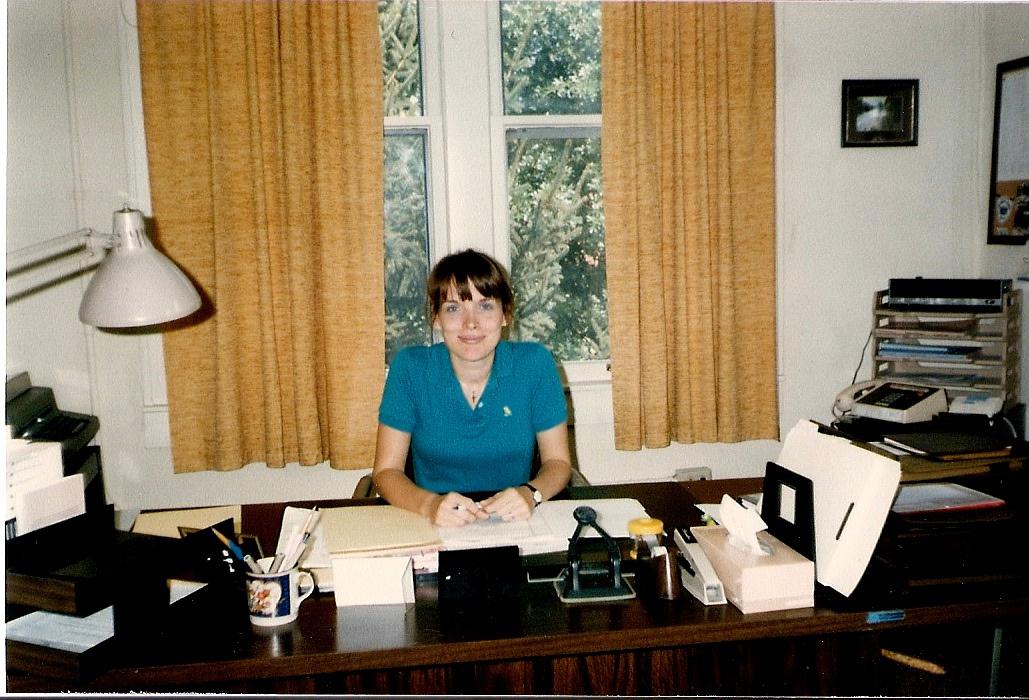
Jo Ann Harvey, circa 1985
I would like to see the housing program for low-income people which started at AppalReD revived. There are also many education issues and people who have special needs who need help. Our client population has many health issues that AppalReD can help with. I am so excited AppalReD is starting a medical legal partnership.
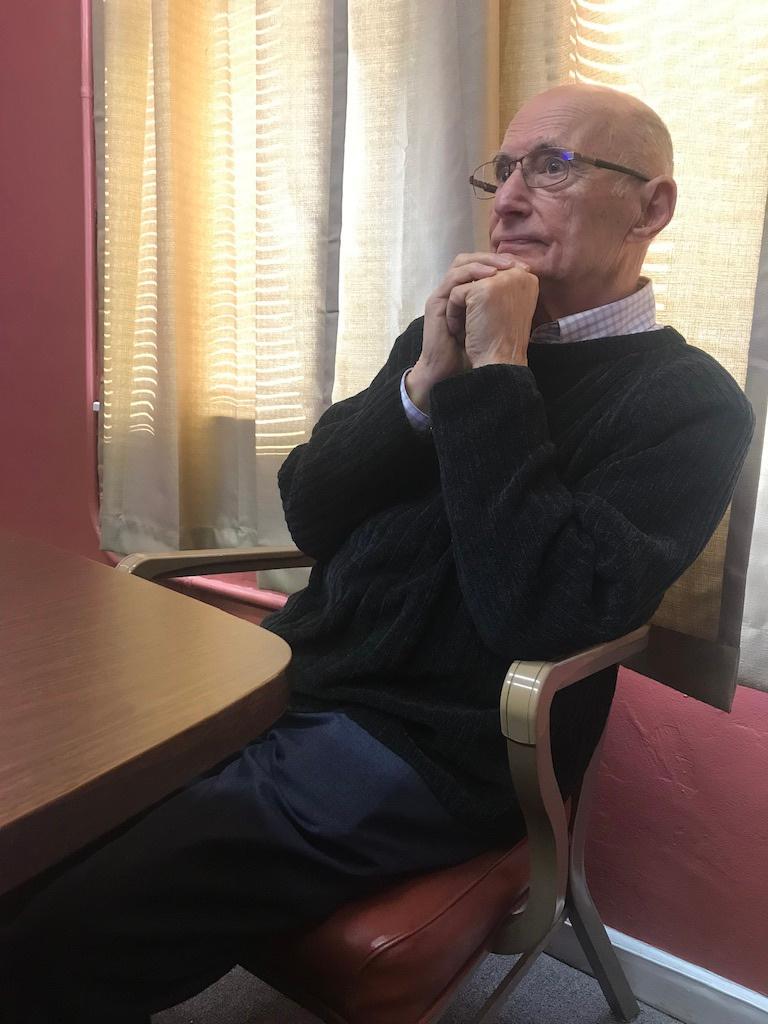
SC: If I handed you a magic wand, what would you wish? JR: To eliminate poverty and for peace.
In our 50th year, AppalReD Legal Aid continues to model the tenacity of its founder as its staff, attorneys, and Director fight daily to provide legal help that ensures lowincome people across the Appalachian Mountains and rolling hills of eastern and south-central Kentucky have food, shelter, income, and safety.
John mentioned nearly 50 people by name in our conversation. Instead of naming them all here, to celebrate AppalReD Legal Aid's 50th anniversary we will be launching a 50 Faces of AppalReD project. We would love to hear your memories and see your photos. We will share some stories in the newsletter and others online. We also hope to create an area at the 50th Anniversary Dinner (Date TBD) where you can walk through pictures and memories.
To nominate yourself or someone else for inclusion in this project, email SarahC@ardfky.org or jandjrose@suddenlink.net.
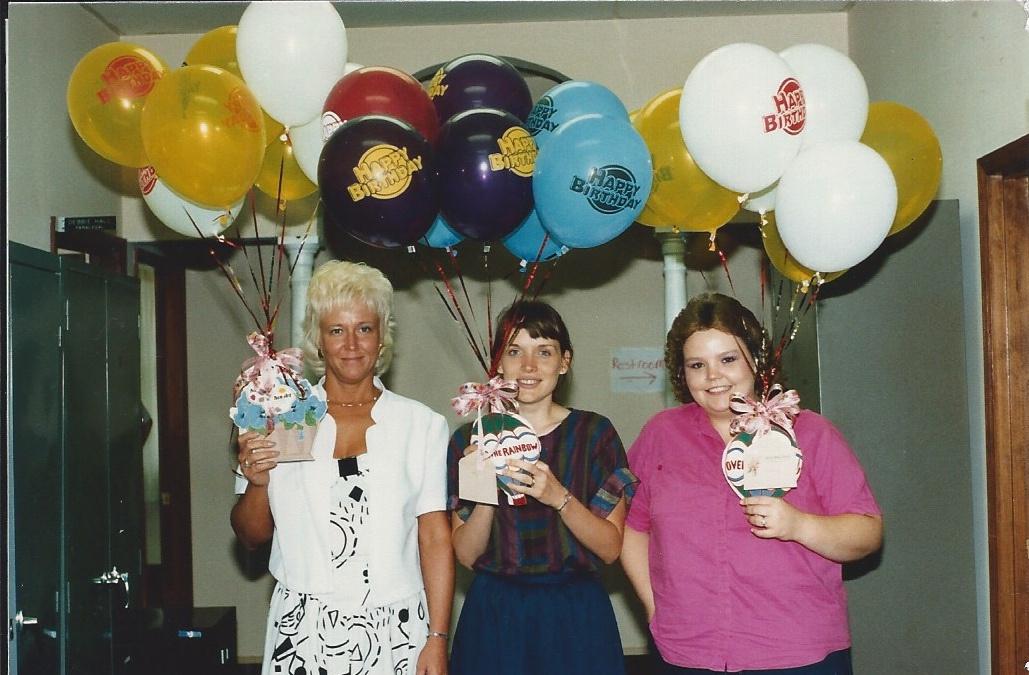
Donna Wells Griffey, Jo Ann Harvey, Meshay Tackett
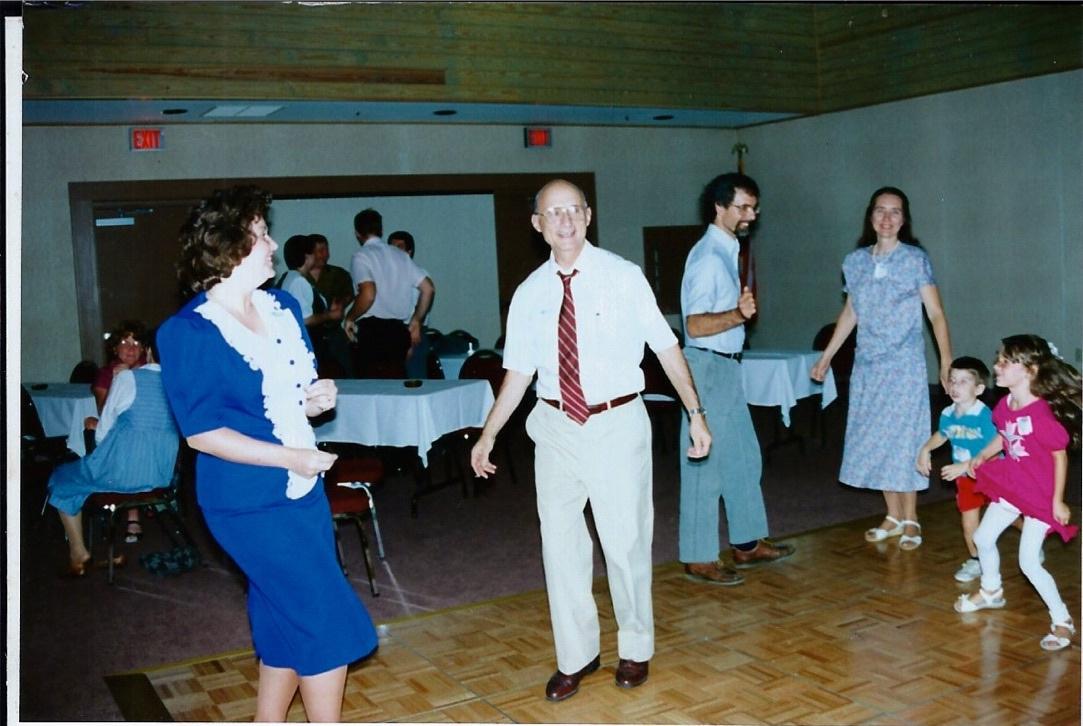
Lisa Barger, John Rosenberg, and Addison Parker
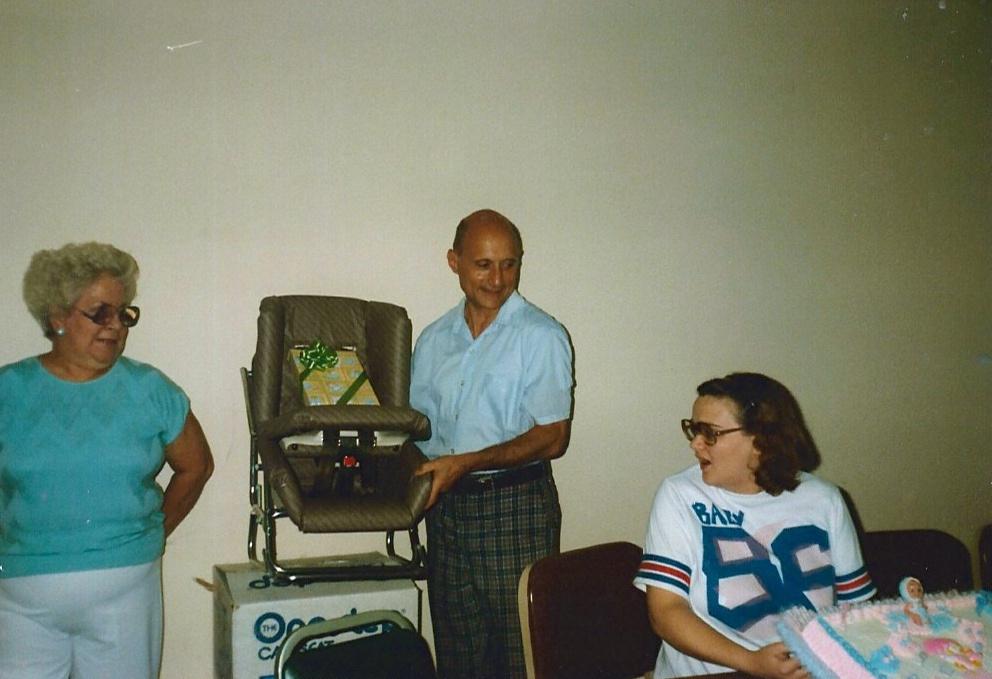
Dorothy Osborne, John Rosenberg, Debbie Hall.

